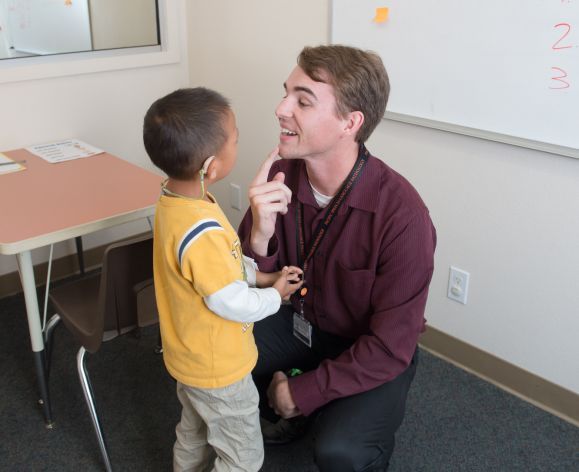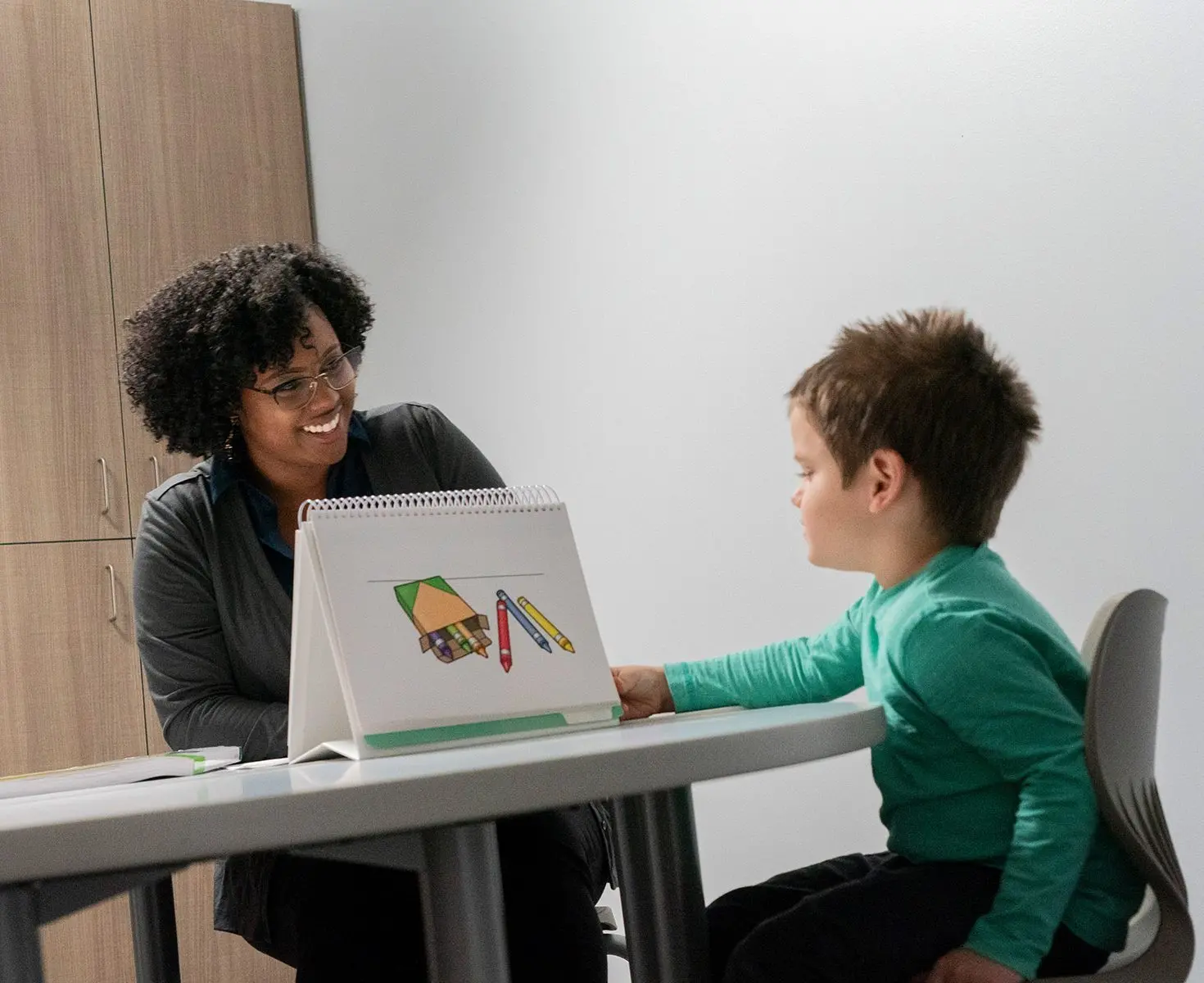Can a Speech Pathologist Help with Stuttering? This is What You Need to Know
Can a Speech Pathologist Help with Stuttering? This is What You Need to Know
Blog Article
How a Speech Pathologist Can Help Improve Communication Skills
Effective interaction is a cornerstone of individual and expert success, yet several individuals encounter difficulties that hinder their capacity to express themselves plainly. A speech pathologist is geared up to resolve these barriers through targeted evaluation and treatment techniques customized to each individual's requirements.
Recognizing Communication Problems
Recognizing interaction problems is crucial for recognizing just how they influence individuals' capacity to express themselves and involve with others. Interaction disorders include a vast array of troubles that affect speech, language, and social interaction, usually hindering efficient interaction. These problems can occur from different variables, including neurological conditions, developmental hold-ups, physical problems, or psychological issues.
Speech conditions might show up as troubles in voice, expression, or fluency manufacturing, influencing how words are pronounced or spoken. Language disorders, on the other hand, include difficulties in understanding or making use of language, which can restrain both non-verbal and spoken communication. Social communication disorders are characterized by difficulties in the pragmatic aspects of communication, such as taking turns in conversation or understanding social cues.
The consequences of communication disorders are profound, impacting not just the person's capacity to share ideas and feelings however also their social relationships, educational opportunities, and overall quality of life. Recognition of these conditions can cultivate compassion and assistance, motivating effective strategies for interaction and involvement. Recognizing the complexities of communication disorders is an essential step in the direction of advertising inclusivity and attending to the requirements of those affected.
Role of a Speech Pathologist
Speech pathologists regularly play a crucial function in diagnosing and dealing with interaction conditions, utilizing a range of evidence-based strategies tailored to each person's requirements. These professionals deal with individuals throughout the life expectancy, from children with speech hold-ups to adults recouping from strokes or distressing brain injuries. Their proficiency incorporates a range of communication problems, including expression, language, fluency, and voice disorders.
In healing settings, speech pathologists make use of structured treatments developed to boost communication abilities. They may carry out strategies such as speech exercises, language games, and social interaction training to promote renovations in expressive and responsive language capabilities. Speech Pathologist. In addition, they enlighten customers and their family members concerning effective communication methods and adaptive techniques to browse everyday interactions
Beyond straight treatment, speech pathologists collaborate with other medical care instructors, professionals, and caretakers to make sure a thorough approach to treatment. They promote for customers by giving sources and assistance, enabling individuals to achieve their communication goals and enhance their general top quality of life. As specialists in the area, speech pathologists are essential in fostering effective communication, promoting self-reliance, and improving social involvement for those with communication difficulties.
Evaluation and Diagnosis Process
The assessment and diagnosis process performed by speech pathologists typically involves a comprehensive evaluation to identify interaction problems properly. This procedure begins with a comprehensive instance history, where the medical professional collects significant details regarding the individual's medical, instructional, and developing history. Comprehending the context of the individual's interaction problems is vital for a precise diagnosis.
Adhering to the instance history, speech pathologists utilize casual assessments and standard examinations to assess numerous facets of communication, consisting of speech noise production, language understanding, expressive language, and social communication abilities. These assessments are customized to the individual's age and specific problems, offering valuable information for analysis.
Monitoring is likewise a critical part of the assessment procedure, as it allows the medical professional to see firsthand exactly how the individual interacts in natural settings. In addition, interviews with household members and educators can offer understanding into the individual's communication challenges throughout different environments.
When the assessment is full, the speech pathologist synthesizes the searchings for to identify a medical diagnosis and recommend proper treatments. This extensive analysis process makes sure that people receive targeted support customized to their unique communication demands, laying the foundation for efficient restorative approaches.
Therapeutic Methods and Approaches
Numerous restorative methods and approaches are employed by speech pathologists to deal with a range of interaction problems effectively. One widely used technique is expression treatment, which concentrates on correcting speech sounds with repeating and aesthetic see here hints. This strategy is specifically beneficial for individuals with speech sound disorders.
One more efficient method is language treatment, which improves both responsive and expressive language skills. This may include interactive activities that promote vocabulary development, sentence structure understanding, and conversational skills. Additionally, speech pathologists frequently use social skills training to boost practical language capacities, making it possible for people to navigate social interactions more successfully.
Fluency shaping and stuttering adjustment methods are specifically designed to assist those experiencing fluency problems. These strategies aid clients develop smoother speech patterns and handle the physical and psychological elements of stuttering.
Furthermore, alternative and augmentative interaction (AAC) systems are utilized for individuals with extreme interaction impairments. These systems, which can consist of motions, symbols, or digital gadgets, offer essential assistance for efficient communication.
Advantages of Speech Therapy

Additionally, speech treatment can aid in establishing important listening and understanding abilities, promoting better communication in conversations. Individuals with cognitive-communication problems can likewise profit, as treatment concentrates on enhancing memory and analytic capabilities, important for effective communication.
An additional important element is the psychological assistance provided throughout therapy sessions. Speech pathologists develop a risk-free environment, motivating clients to get over stress and anxiety and aggravation pertaining to their communication concerns. This support can bring about enhanced self-worth and total mental wellness.
Moreover, very early intervention with speech treatment can avoid more problems, making certain that individuals reach their complete communicative potential. Generally, the advantages of speech therapy prolong past mere speech enhancement, this post favorably impacting numerous measurements of life for those impacted by interaction troubles.
Conclusion
In recap, speech pathologists play a crucial role in attending to interaction disorders with analysis, medical diagnosis, and tailored therapeutic treatments. By using evidence-based strategies, these professionals improve people' speech and language capacities, cultivating improved clarity, fluency, and social interaction abilities. The advantages of very early treatment underscore the importance of seeking support from speech pathologists, as their expertise can significantly improve communicative capacity, eventually causing better success in both specialist and individual rounds.

Speech pathologists often play an essential duty in diagnosing and treating communication disorders, utilizing a variety of evidence-based strategies customized to each individual's needs. As professionals in the area, speech pathologists are crucial in fostering effective communication, promoting self-reliance, and improving social engagement for those with interaction obstacles.

Report this page